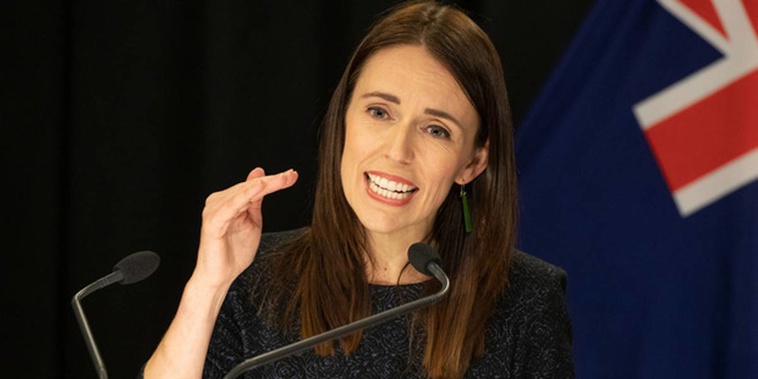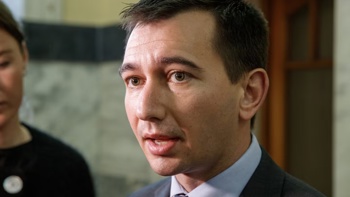
As New Zealand's lockdown looms at midnight on Wednesday, many have raised questions on what they can and can't do during this time.
The Government yesterday announced that the country will progress to alert level 4, which means people need to stay in their homes.
The only reasons people can go out is it they need to do a supermarket and/or pharmaceutical run, works for an essential business or do outdoor activities like gardening or going for a walk in their local area.
Everyone has been advised to practise social distancing, which includes being 2 metres away from another at all times.
If people don't follow these restrictions and requirements, enforcement action would be taken.
Here are some common questions answered:
Can I see my family and friends during the lockdown?
From 11.59pm on Wednesday "everyone must stay at home unless they are working in essential services", Government Controller John Ombler said during today's presser.
He said that meant no socialising with people outside their households.
Prime Minister Jacinda Ardern said if people live alone, they can have contact with one person outside of their home, but limit it to that interaction.
- Government updates list of essential services
- Heather du Plessis-Allan: This is a lockdown, not a holiday
- Dr Siouxsie Wiles answers questions about Covid-19 lockdown
Those designated helpers, though, cannot socialise with others, nor can they be people with compromised immunity.
- Am I an essential business worker?
The Government has put up a list of essential businesses, which is changing over time.
Employees should have been notified by now if they work for an essential business.
Companies who are unsure if their business comes under the list, an 0800 number will be available on the Government's Covid-19 website later today.
- What about shared custody?
Director-General of Health Ashley Bloomfield yesterday saidchildren in shared custody arrangements can go between parents' households as long as they live within the same community.
This means that, for example, if a child spends time with a parent in Auckland and a parent in Christchurch, it is likely that travel restrictions will see that child spending the lockdown period with one of the parents. This is to minimise the risk of Covid-19 spreading.
However, if both parents live in the same city or town, then care arrangements should be able to continue as normal, as both households will be taking all the safety measures related to self-isolation.
- Am I allowed outside?
Yes, as long as social distancing is being applied and you stay in your local area.
Ombler said people could go outside and exercise, but need to keep 2m away from other people at all times.
He said maintaining distance was still important while going to the supermarket or pharmacy.
People are also able to go outside for fresh air and exercise, as long as they do so on their own or with people they are self-isolating with.
- Can I buy and order groceries?
Grocery stores are essential services and will remain open during the lockdown.
Prime Minister Jacinda Ardern has urged people to shop normally and food will still be available during the lockdown in their local areas.
Any entity involved in the supply, delivery, distribution and sale of food, beverage and other key consumer goods essential for maintaining the wellbeing of people.
- Will my local dairy and bakery be open?
Dairies and corner stores could stay open if they were the only provision in more isolated communities.
The Government has not clarified if bakeries come under essential businesses.
- Will fast food delivery be available?
No - fast food is not included in the essential business list. This includes fast food delivery and Uber Eats delivery.
Food preparation is a particular area of risk which is why takeaways were closing, as while people collecting the food might not make contact, those in the kitchen would be.
- Are liquor stores open?
The Government has yet to decide if liquor stores are an essential service.
Wine and beer will still to be sold at supermarkets.
- Can I visit the pharmacy, doctors, hospitals?
Yes, health facilities are also included in the essential business list along with hospitals, primary care clinics, medical laboratories, care facilities (eg rest homes).
If people need to see a doctor or other medical professional they MUST phone first.
Most consultations will happen over the phone (or by videoconference) to stop any risk of the disease spreading by person-to-person contact.
If a face-to-face meeting is required, their doctor or other medical professional will organise this with them.
If they cannot get through and are severely unwell, for example having trouble breathing, contact emergency services (dial 111).
- Can I use public transport and normal transport
The Government have asked people to limit their movement around the country to help contain Covid-19.
Airplanes, ferries, and public transport including trains and buses will not generally be available after midnight Wednesday.
Public transport will only be available for those working in essential services, for medical reasons, and to get to the supermarket.
Ferry services, road and rail will still be available for the transport of essential goods.
Driving in private vehicles is allowed.
Taxis and Ubers are still available to use as long as customers sit in the back seat.
- What about flights?
For anyone who is stuck around the country, they will be able to get home and arrangements can be made, Ardern said.
Government has been working with Air New Zealand to support people getting back to where they're meant to be and what that demand is.
- International air travel.
Visitors and tourists can still use international air services to travel home.
They have been advised not to go to the airport unless they have a ticket. If people do not have a ticket they need to contact a travel agent or airline directly.
If people are unable to secure a ticket, then they need to contact their country's embassy.
- Domestic air travel
While the country is in alert level 3, people will need to get home, be it locally or throughout the country.
The Government has asked all air transport providers to ensure social distancing for that period.
However, from 23:59 Wednesday March 25, 2020, the Government will be moving to air travel only applying to the transport of people undertaking essential services and the transport of freight.
Visitors and tourists can use domestic air travel to proceed to an international airport.
- Is my recycling and rubbish still going to be collected?
Most councils have advisories on their websites about which services they're still taking.
All are still collecting rubbish but some aren't collecting recycling - where a council is not taking away recyclables the advice is to stockpile your cans, plastic and cardboard as this kind of waste doesn't go off or start to smell like general waste.
- Will mechanics be open?
Some mechanics are expected to shut down, but the Government said that any entity providing services to keep vehicles operational for essential work purposes (eg vehicle testing, mechanics, tyre services) will remain open.
- Will service stations be open?
Yes - they are an essential service.
- Will The Warehouse be open?
Ardern said people shouldn't expect to be able to go to their local Warehouse.
The Government had not decided that the Warehouse was an essential service.
- What will happen with my kids' schooling?
The children of essential workers – like doctors, nurses, ambulance drivers and police – are still able to go to school or early childhood centres until Wednesday March 25. For these families, schools will then be closed from the end of Wednesday.
Educational providers that remain open over the next 48 hours will put in place appropriate public health measures – including physical distancing of 2 metres and contact tracing.
The upcoming school term break will be brought forward to start on Monday, March 30.
For the remainder of this week and through the term break, schools will establish ways to deliver teaching online and remotely.
The Ministry of Education was working through the logistics of distance learning, including access to internet and getting devices to learners who don't have them.
Those with no internet coverage at all, so the ministry was working with television and radio services to beam into kid's homes.
If the lockdown was prolonged, the year of study would be more disrupted and NZQA would decide how that would affect the year of learning.
- Who can look after my kids if I am an essential worker?
A child of an essential worker who can't stay home could have an identified buddy in their self-isolated group to take care of the child.
Options are being looked at for childcare, but older people - including grandparents - and those with compromised immunity were not suitable people to look after kids.
Police vetting would help ensure childcare services would be appropriate, and there were many ECE workers who could step into nanny roles.
- If my pet gets sick, can I go to the vet?
Veterinarians are considered an essential service.
As well as any entity whose closure would jeopardise the maintenance of animal health or welfare standards (including the short-term survival of a species).
- Will I still get mail?
Yes. NZ Post will continue to operate throughout the lockdown period, as it is considered an essential service. Post and courier deliveries via NZ Post will still happen.
- Will there still be builders working?
It depends. Construction workers will still work on what is deemed essential or critical. For example, work that needs to happen in order to maintain human health or safety will still carry on.
- Can I finish my house renovation?
In theory, yes, provided you are doing it on your own or with the people you are self-isolating with. However, it is not yet clear whether hardware stores will stay open throughout the lockdown period so you might find yourself short of supplies. We will update this answer as more information is made available.
- What if something breaks in my home?
Electricians, telecommunication workers, plumbers, internet providers are all classed as essential services and will still work on critical services. This means that if you have a leak or your power goes out, you will still be able to call someone to help you.
Take your Radio, Podcasts and Music with you









